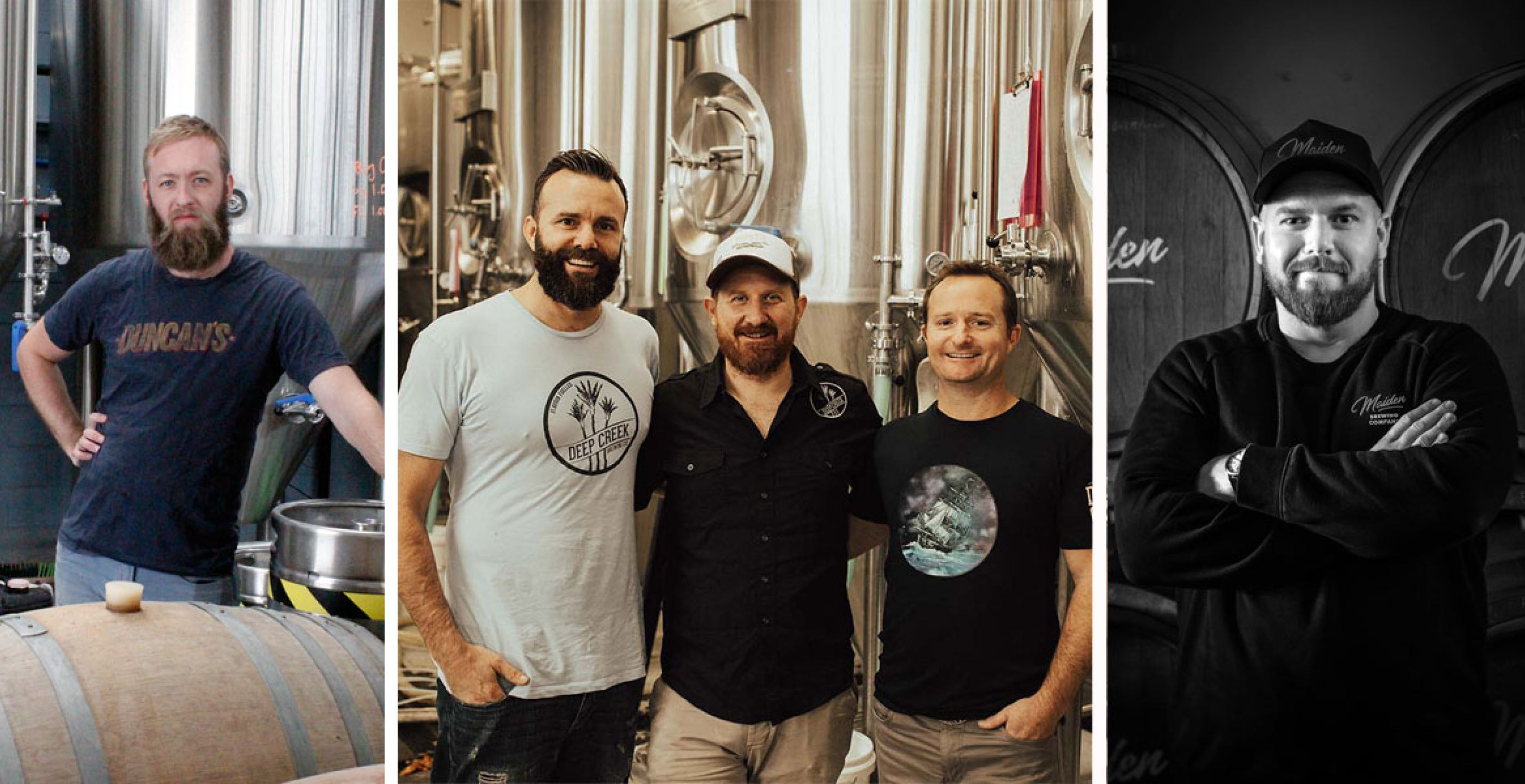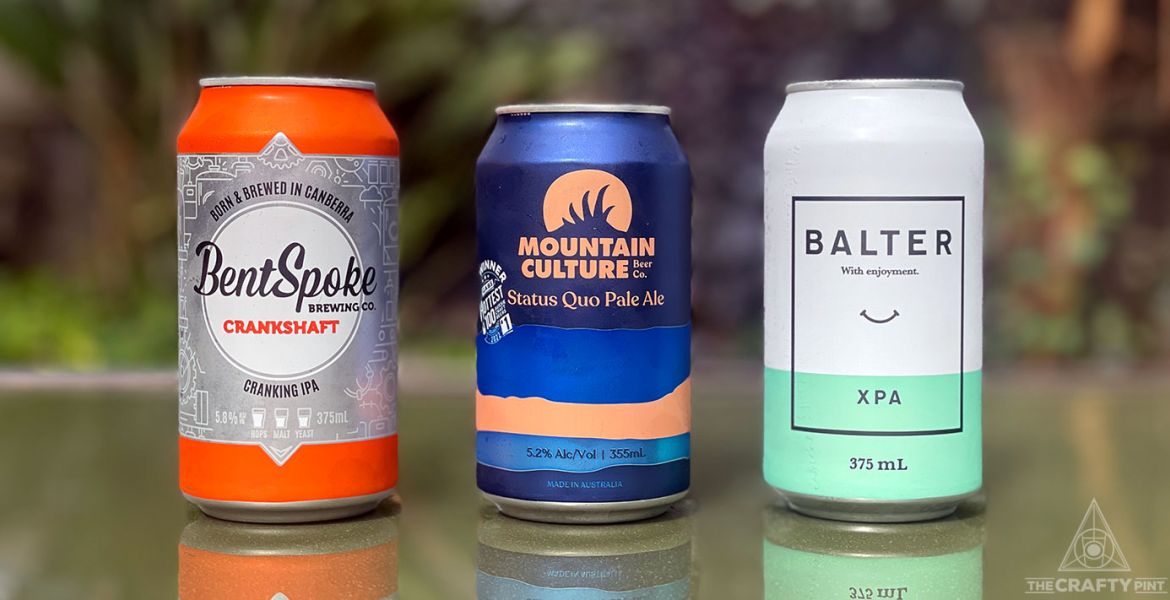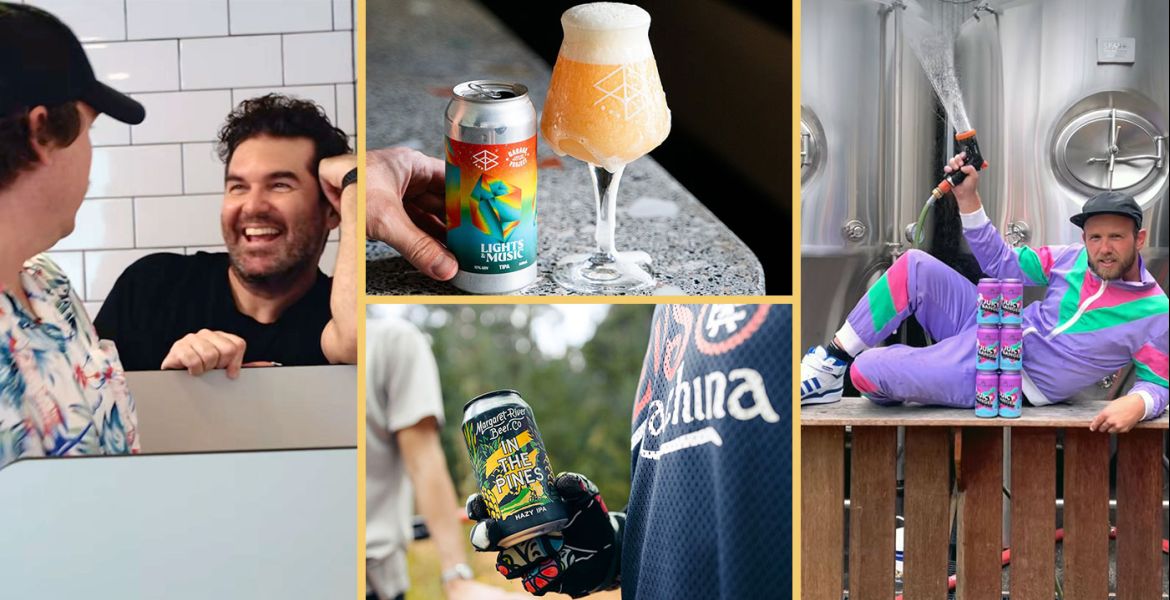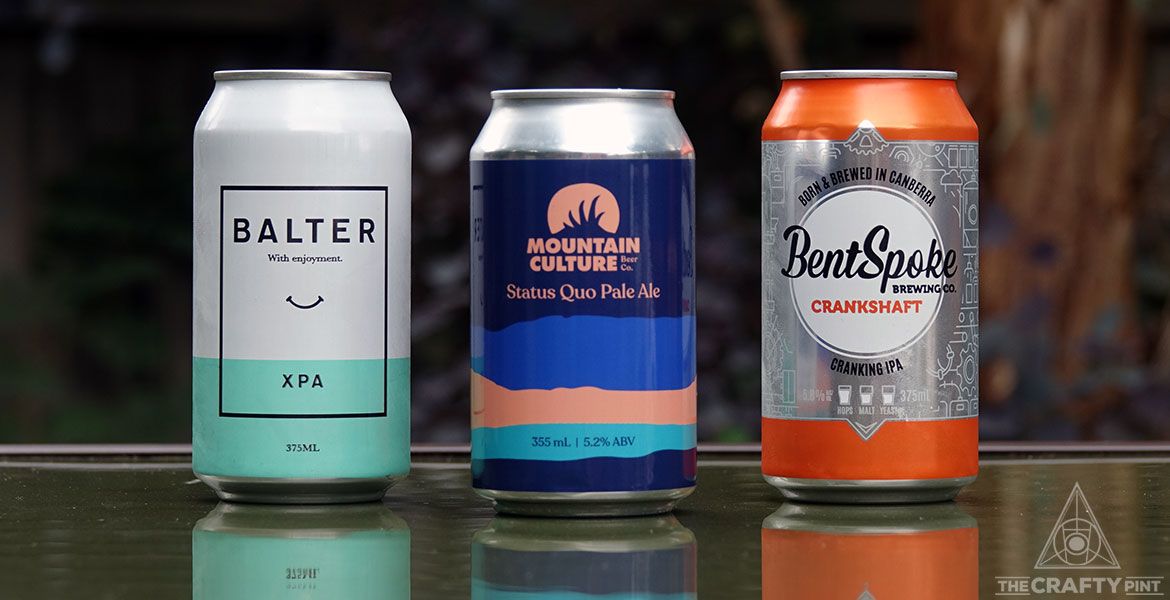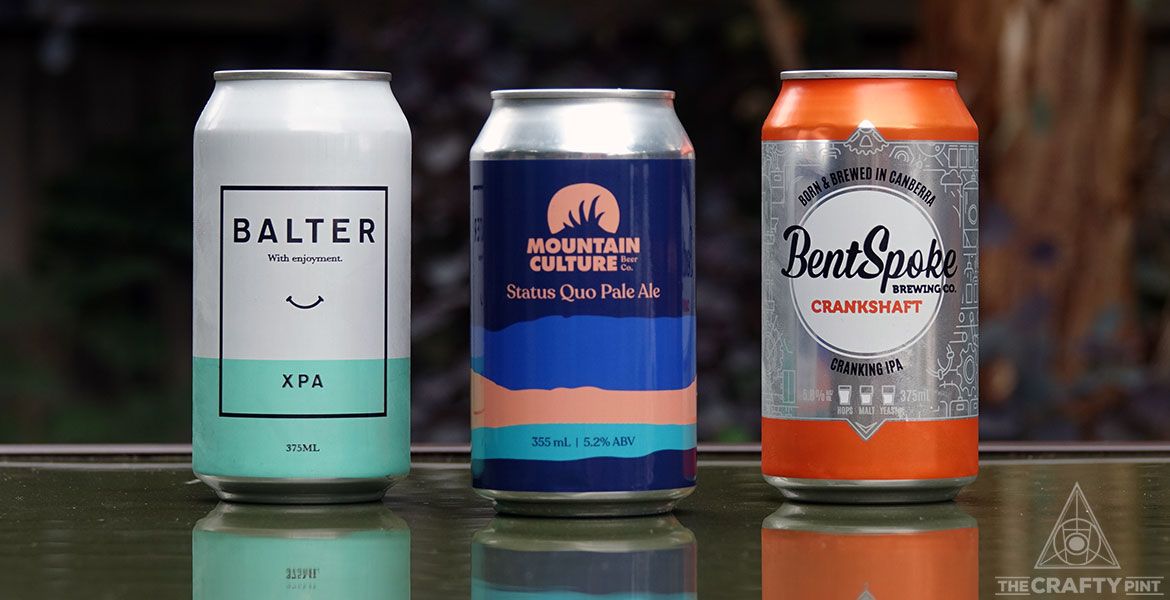While Garage Project and Panhead continue to fight it out for top spot, Jono Galuszka has looked elsewhere for stories amid the 2019 results in the GABS Hottest 100 Kiwi Craft Beers.
Here, he chats to the folks behind serial award-winners Deep Creek, Duncan's (whose Raspberry Ripple he can't get enough of) and Maiden Brewing who stormed into the 2019 countdown with no less than five beers.
Deep Creek
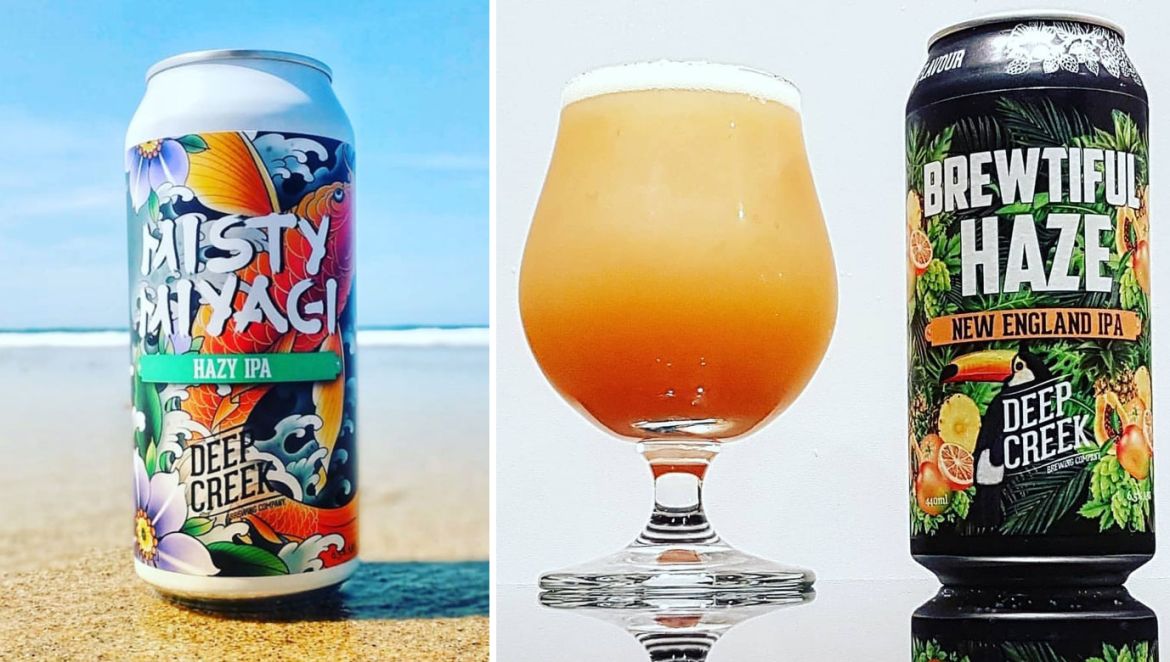
The march of the hazy hoppy things continues across New Zealand, with their army taking out 37 spots in this year’s Hottest 100 – up from 18 last year. While Garage Project had the highest-placing with their Trillium collaboration Aro Street in third, Deep Creek’s Misty Miyagi was the next cab off the rank just one place below.
The Auckland-based brewery is one of the rising stars of the New Zealand beer scene, largely thanks to its focus on New England IPAs and fruited kettle sours packaged in gorgeously branded 440mL cans. It is a far cry from the brewery’s origins as a brewpub in Brown’s Bay in August 2011, according to co-founder Scott Taylor.
“We started with a pilsner, IPA, pale ale, Irish red ale... the first beer we did was Dusty Gringo, an India brown ale,” he says. "Those styles stayed for a long time – they were incredibly popular at the brewpub – but when you discover other styles, especially sours, it’s a turning point.”
Deep Creek started after Scott met fellow founders Paul Brown and Jarred MacLachlan, who were into brewing, through a mutual friend.
“It is quite cliche – a bunch of guys brewing in a garage,” Scott says. “The idea was to brew our own beer for our community. It went gangbusters.”
Head to the Brown’s Bay pub – a 30 minute drive from Auckland’s CBD if traffic behaves – on a sunny day and you can understand that statement. The spot is always heaving, with the outdoor tables facing into the Hauraki Gulf especially coveted. The park between the water and the pub is full of children skating, while the beer always tastes good after a quick dip in the sea.
But Scott and the team were quickly looking further than the water. Thoughts on next moves ended in two more pubs, including one on the wine-centric Waiheke Island, and a production brewery. That made making beer much easier, as the Brown’s Bay pub had its brewery located directly behind the bar. It also made Deep Creek’s founders realise what they wanted to do with the brand.
“We wanted to be a brewery rather than just a brewpub," Scott says. "We had no idea what we were doing with bottling and packaging, so we sent stuff out maybe before we were ready.”
Clearly, research was in order. What better reason for a trip to the United States, which also served as inspiration for Deep Creek’s future.
“We got more kit and fun todays we needed, got into canning, did a rebrand and came out again,” Scott says.
That move got a massive boost when they won Champion Small International Brewery at the 2017 Australian International Beer Awards, just as they were looking to push into the Australian market. That, combined with exporting to eleven countries and the increasing local demand, has given Scott and his fellow founders all the confidence they needed to double-down on the brewery-only model. They even sold the brewpub and two other bars, such is their singular vision of a brewery becoming a household name in New Zealand while keeping quality extremely high overseas.
“It’s all baby steps," Scott explains. “We have to keep to what got us here in the first place: really focusing on the quality of the beer – sure the product is the best quality beer we can – while also keeping it fun and interesting with the designs and making people want to pick it up off the shelf.”
“Our tagline was always ‘flavour-forward’. We’re trying to make beer a little bit different.”
But keeping things different now means going backwards, looking at brewing traditions of old to keep things invigorating for both the brewery’s founders and the brewing team Scott insists must be given all the praise: Johan Lagercrantz, Dylan Adams and Evie Paulsen. As much as in fashion styles like hazy IPA and fruited kettle sour have brought Deep Creek success, it is the Wildwood range of barrel-aged wild-fermented beers which excites Scott the most.
The first was Bluegrass, a bourbon barrel-aged, wild-fermented imperial porter. But it is Diep Kriek, a riff on a Belgian cherry beer, which has garnered the most praise. It took out the trophy for best beer at the Brewers Guild of New Zealand Awards in 2019, something Scott found extremely surprising given it was the second beer in the project.
“We love that old barrel-aged sour character,” he says. “But they aren’t quick beers to make.”
The success bodes well for the year ahead, when Deep Creek should also release a Flanders-style red ale, a cassis and framboise.
Looking back to go forward also includes looking at turning their production brewery into a space people can visit so they can “experience the home of Deep Creek”, Scott says. It is, for him, about keeping things moving and interesting.
“Beer is a fun game to be in. It is supposed to be fun.”
DUNCAN’S
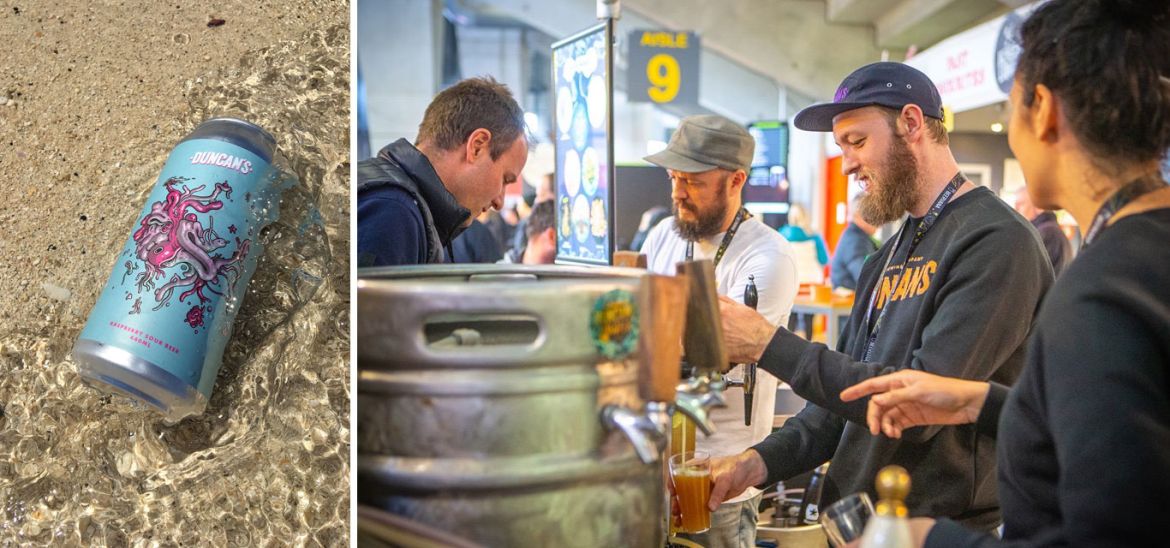
George Duncan loves it filthy.
“I love fizzy drinks, but really disgusting sodas,” he elaborates. “Sarsaparilla, Dr Pepper, anything with cherry in it. The more artificial, the better.”
He soon goes on to wax lyrical about a generic-brand raspberry creaming soda for the best part of a minute, the joy evident in his voice.
Finally, it all makes sense. When he started Duncan’s Brewing he focused on classic styles like pale ale and pilsner. Now, his range is anything but standard. Two-thirds of the beers listed on his website have some kind of adjunct, with most of them featuring lactose, including his Raspberry Ripple Ice Cream Sour.
“What can I say? I love dairy,” George says, followed by a chuckle.
George is one of those people who ends up being good at everything they try. A builder by trade, he also makes excellent charcuterie and produces his own music.
“At the moment I’m really into making ramen,” he says. “I’m just really into making things.”
It seems only natural he would end up creating fantastic beers in Paraparaumu, smack bang across the road from Tuatara Brewing. But he never had an interest in brewing growing up.
His path to running his own commercial brewery started, of all places, while he was studying sonic arts at university.
“I was doing a summer paper in chemistry to get credits, and was tutored by a biochemist who was really into homebrewing,” he says. Naturally, a trained biochemist was going to make cracking beers. “I was blown away that you could make awesome interesting stuff like wheat beer and stout at home. I just got hooked.”
The idea to start a brewery came after he and his wife Waimatao Familton did a trip through the United States, seeing breweries in plenty of small towns.
“It just blew me away how achievable it seemed,” George says.
Duncan’s started in 2014 as a hobby business while George still worked as a builder, until a space became free in Paraparaumu and the idea to go full time was planted. He also had one of the best possible mentors when starting his new brewery in 2016 – Tuatara founder Carl Vasta.
“I asked him if it was doable and he said it was. I just decided to take the leap.”
Carl even helped by supplying former Tuatara kit “and stuff he was just building in his shed,” George says. The instructions may not have been the greatest, though: scrawled on the back of a napkin and handed over just as Tuatara was bought by DB. That curtailed the amount of help Vasta could give, hence the napkin.
“He said, ‘Here’s the equipment, here is the diagram on how to put it all together, sweet as.’.”
The Duncan’s range stayed classic for some time, with a juniper IPA the most out-there offering, until George decided to use Beervana as a chance to push the boat out. His first experimental offering was Whippy, a lactose East Coast IPA which was supposed to be a one-off.
“I keep trying to cancel it but people keep ordering it. It has inadvertently become a part of the core range.”
Lactose has quickly become the core ingredient for George, with his ice cream sours garnering plenty of fans. The idea for the range, which debuted at Beervana in 2019, was planted three years ago by Llew Bardecki who ran Wild and Woolly Brewing in Wellington.
“He said he was in San Francisco and he had a sour beer on nitro, a lactose-sweetened berry sour. It sat in my mind for two years; it just stuck in my mind. I remember tasting one from the tank and thinking, ‘This is either an abomination, or people are going to love it’.”
There is a subversiveness to George’s lactose obsession, which seems to be some kind of reaction to the fact he stuck with more traditional styles when starting Duncan’s partly because of a perceived obligation.
“You look at beer as having to be for everyone, so you make your branding as approachable as possible. But then everything comes super-beige.”
While the advice from Llew was part of the trigger, it was getting illustrator Dr D Foothead to work on label design which really inspired George. People instantly took to the branding, despite it being left-of-centre. That, in turn, pushed him into brewing different beers and trusting people would gravitate to them.
“I have done a full circle on what I wanted from the brewery,” he says. “But people can get stuck on what they originally set out to do, meaning they’re not able to adapt and change. But if you’re into craft beer you’re already into something different.”
MAIDEN BREWING
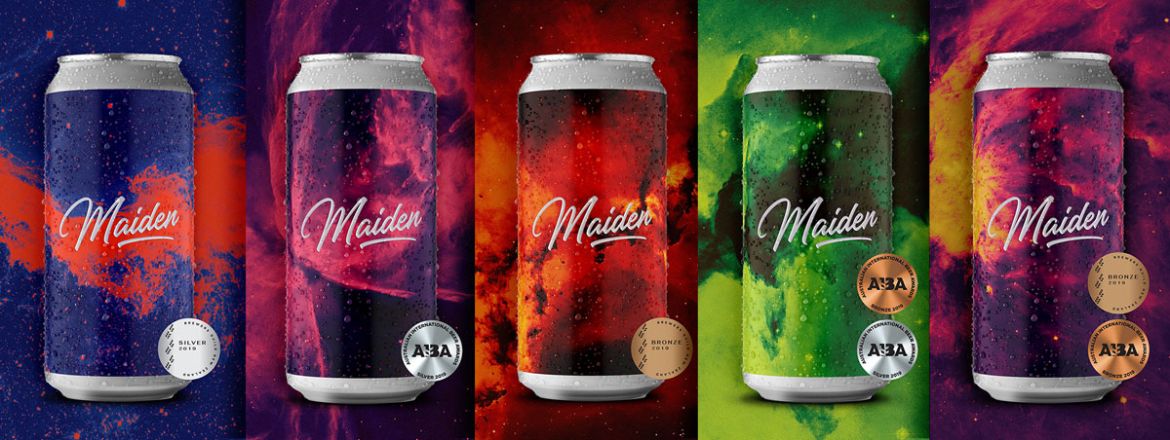
When a sci-fi nerd decides to start a brewery and launches a range of beers based on a hypothesis that we live in a reality where there are multiple universes, things go one of two ways: the beer does not live up to the hype; or things are about to get especially good. Thankfully, in the case of Maiden Brewing, it’s the latter.
Maiden is arguably the shock package of the Hottest 100, sending five beers into the chart despite rarely being seen in some parts of New Zealand. All of them art part of the Multiverse series, which brewery founder Adam Laird (pictured on the right at the top of the article) says is based on the multi-universe concept, found in pop culture thanks to the likes of the Marvel movies and Rick & Morty.
“With a multiverse you make one decision and anything happens. [With the beers] I use the same malt and hops on the hot side, but every beer is different with the hopping or fruit used, so it’s always different. You’re always getting a different outcome within the same parameters.”
The different additions have included Hallertau Blanc hops, passionfruit, kiwifruit and lime.
Rewind seven years and things were very different. Adam had just moved to Wellington to train as a paramedic. If he finished the course, he would have likely spent most weekend nights on Courtenay Place, the party strip of New Zealand’s capital, dealing with the aftermath of too much booze and not enough sense. Instead, he dropped out before starting the second year to get into brewing.
“When I started the course I needed a little bit of a hobby, rather than studying 24/7.”
He started that hobby, homebrewing, the same way as his friend, Choice Bros founder Kerry Gray – with a Coopers kit bought from a supermarket. He quickly caught the bug, graduating to all-grain before taking a job at mike’s in Taranaki then moving to Baylands Brewing in Petone and ParrotDog in Wellington.
But all the while Adam had a passion for acid-forward beers, mainly cultivated by one person: Paul Wicksteed, an active member of the New Zealand homebrewing scene an avid YouTuber who died tragically in 2015 at just 44 years of age. Paul got Adam onto the Milk The Funk page on Facebook, which is as close to a Bible a brewer can find if they want to get into making acid-forward beers.
“I jumped in and learned [acid-forward beers] were quite intricate and involved an interesting process to produce,” Adam says. “I really loved the process.”
It was about the time New Zealand was still in the pre-hazy IPA phase, with drinkers wanting their IPAs hoppy, lean and bitter. Adam, though, enjoyed the fact a fault like sourness could be seen as a positive. He especially liked delving into the different causes for sourness – lactobacillus, pediococcus and Brettanomyces – an decided: “I wanted to make that in a commercial model.”
That led to Maiden, which is currently focused on acid-forward beers but which he sees a means of experimentation, using yeasts such as Norwegian kveik and other innovations which come along in the brewing world.
“It makes me want to experiment. That’s where the passion comes from,” he says. “My issue has been not wanting to conform to just brewing APA or IPA. It’s about being unique and different and putting my touch on things that have come before.”
You can check out the full results and analysis from the GABS Hottest 100 Kiwi Craft Beers of 2019 here.





